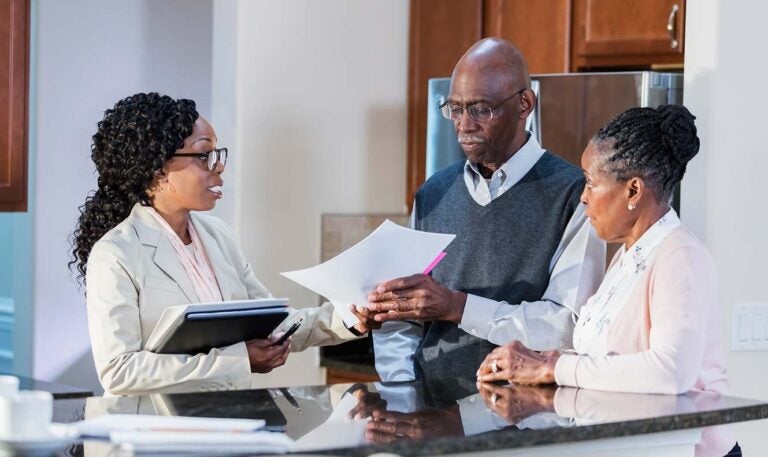Reverse mortgage loans allow older borrowers to access a portion of their home equity and forgo monthly mortgage payments. While these loans can be useful in many situations, they aren’t for everyone. In addition to determining that a reverse mortgage makes economic sense, before pursuing a reverse mortgage, borrowers need to meet the following requirements.
Borrowers meet the minimum age requirement
To be eligible for an FHA-insured mortgage, borrowers must be 62 years or older (proprietary mortgage product age requirements can vary). Spouses who wish to be on the loan as co-borrowers must also meet the age requirement of the loan. Spouses who do not meet the age requirement may live in the home but can’t share the mortgage.
The home is the borrower’s primary (or principal) residence
A borrower can only take out a reverse mortgage on a home they own and live in for the majority of the year. If the borrower leaves the home for more than six consecutive months for a non-medical issue or 12 consecutive months for a medical issue, the loan will become due.
Borrowers can meet monthly financial obligations
Though reverse mortgages do not require monthly mortgage payments, borrowers retain other financial obligations associated with homeownership, including property taxes, homeowner association (HOA) fees, property insurance, and the cost of maintaining the home. Depending on the loan terms, borrowers may also be responsible for mortgage insurance premiums and origination fees.
As part of the application for a reverse mortgage, borrowers will undergo a financial assessment, which will help determine their ability to meet the terms of their loan.
The property meets the requirements for a reverse mortgage
Only certain types of properties are eligible for a reverse mortgage. Mobile homes, co-ops, and multifamily homes with more than four units are not eligible. The following types of homes can be eligible:
- Single-family homes.
- Multifamily homes. A multifamily home must have four or fewer units, and one of them must be occupied by the applicant.
- Condominiums. To be eligible, the condo must be Federal Housing Administration (FHA)-insured.
- Manufactured homes. FHA- and HUD-approved manufactured homes built after 1969 are eligible. A manufactured home must fulfill several unique requirements to be eligible for a reverse mortgage.
- Farms on agricultural land. A farm may be eligible depending on the land’s acreage and the home’s value. However, if the property generates any profit, it will not be eligible.
Borrowers undergo mandatory counseling
All reverse mortgage applicants must complete mortgage counseling with a US Department of Housing and Urban Development (HUD) approved agency. This session ensures that borrowers fully understand the terms and conditions of their loan.
The borrower has substantial equity in the home
Equity includes the amount of money paid on the mortgage plus the amount the home has accrued in value above the amount owed. Specific amounts are determined by the FHA and dependent on multiple factors, including borrower age and current interest rates. In general, borrowers will need around 50% equity in the home to be eligible.
After determining you meet the eligibility requirements and that a reverse mortgage is a good idea for you, the next step will be to research available lenders and loan offerings.



